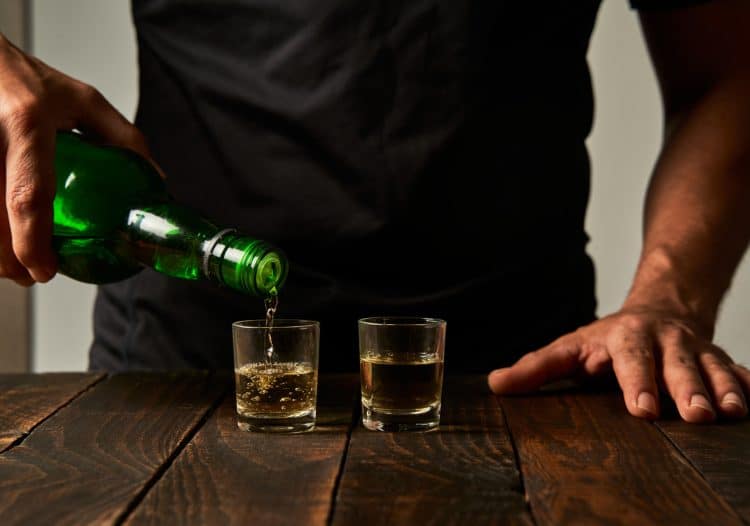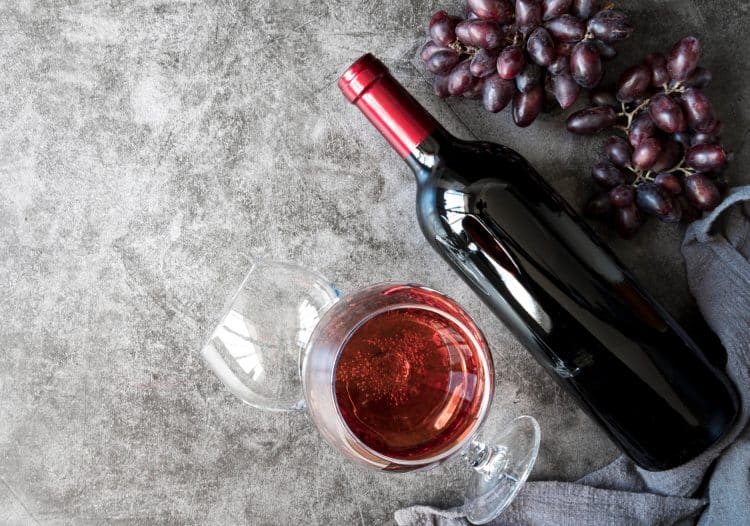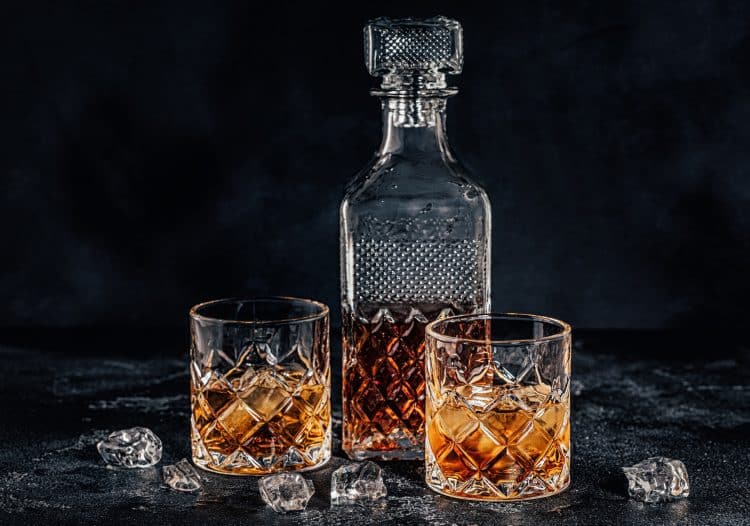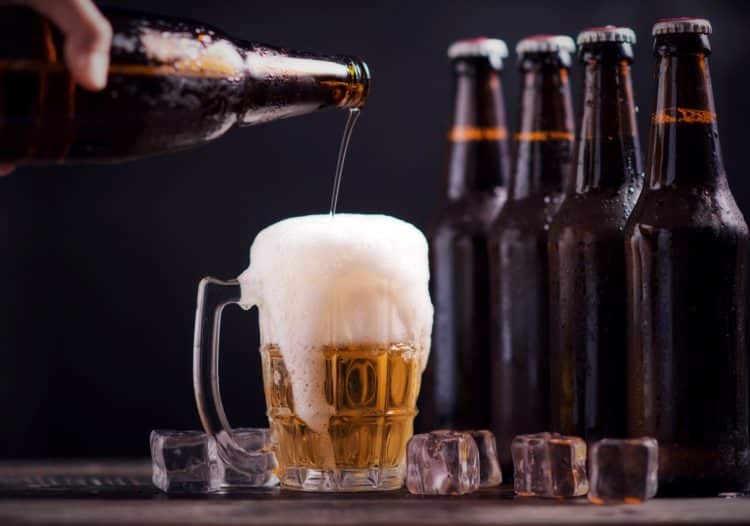It seems that everyone you know is into intermittent fasting. However, before you start on a fasting plan to achieve your fitness goals, there are a few things you have to consider. If you enjoy alcohol and cannot do without a glass or two of your favorite spirit, you may wonder whether alcohol consumption breaks a fast.
Intermittent fasting is restrictive and centers around fasting and eating periods where you can only consume calories during a specific eating window. The results of intermittent fasting depend on your adherence to the schedule and your body’s metabolism. Depending on your chosen intermittent fasting diet plan (such as 16/8 or 5/2), this may involve abstaining from food for several hours in the morning or delaying lunch until later in the day. The benefits of intermittent fasting are well-known and documented.
Now, the fasting aspect of IF involves several questions regarding what you can or cannot eat or drink and when. Luckily, water and unsweetened coffee are okay. However, alcohol is a different beast altogether.
Firstly, drinking on an empty stomach (which will be the case when you come out of a fasted state) is not a good idea. Again, your love for cocktails at all hours of the day can disrupt your weight loss progress, mangle your sleep cycle, and make it difficult to adhere to the fasting plan.
However, all that being said, there are some ways in which you can fit in alcohol intake with intermittent fasting. Here’s all you need to know about drinking alcohol while practicing intermittent fasting.

Can You Drink Alcohol While Intermittent Fasting?
This is certainly the first query regarding alcohol consumption during intermittent fasting. To answer this question, you must take a few facts into account. One gram of alcohol has seven calories. This is more than sugar and a little less than a gram of fat. Now we know that calorie consumption during fasting windows is a strict no-no. This means that you cannot have alcohol while you are in your fasting period.
But can you sneak in a drink or two in your feeding window? The short answer to this is yes. However, you must consider a few things.
Firstly, you must not drink on an empty stomach. This is because, on an empty stomach, alcohol is absorbed more rapidly, leading to a faster onset of intoxication. Also, if you have your drinks before meals, you could get severe dehydration. These are also why it is not a good idea to break your fast with a glass of alcohol.
Secondly, alcohol can make you hungry, leading to higher calorie consumption. [1]
People follow IF mainly for weight loss. Now, if you drink alcohol, it also makes you hungry. Excess snacking following a drink can offset the calorie deficit you painstakingly achieve.
Thirdly, alcohol is a high-calorie drink. The calories in your drinks can be easy to miss if you do not keep a check on how many glasses you are knocking back. These calories will add up, ultimately leading to unwanted weight gain.
It is important to remember that calories in alcohol are called “empty calories,” meaning that they do not have any nutritional value or provide any health benefits.
So, Will Alcohol Break a Fast?
If you want a short answer to this, it is yes. Alcohol will break your fast if you consume it during your fasting period. During the fasting interval, you are not allowed to eat or drink anything that has calories, and alcohol does have calories.
Will Intermittent Fasting Results Be Affected By Alcohol Consumption?
In terms of weight loss, it is the quantity of alcohol that will matter in the end. Studies have shown that a moderate intake of alcohol does not affect your weight. [2]
However, if you are a heavy drinker, alcohol intake will promote obesity and weight gain. [3]
If you want to make the most of IF, we recommend limiting alcohol intake to feeding windows and drinking in moderation.

Benefits of Intermittent Fasting
Here are the benefits you can derive from intermittent fasting so that you stay motivated to reduce your alcohol intake:
Reduces Inflammation
IF helps reduce inflammation. Alcohol’s influence on inflammation will depend on the amount of alcohol you consume. While moderate alcohol intake is known to curb inflammation, excessive drinking promotes it. [4]
Fat Oxidation
Intermittent fasting enhances fat oxidation, thereby burning the excess fat stored in your body. However, alcohol, conversely, acts as a fat oxidation inhibitor and ultimately creates a fat surplus. [5, 6]
The non-oxidized fat usually gets dumped around your midsection, creating a “beer belly.” Hence, if you are chasing a perfect body, think twice before reaching for a glass of alcohol.
Brain Health
Intermittent fasting has been shown to increase brain health by increasing brain cell lifespan. [7]
Excessive alcohol consumption can lead to brain damage. IF is also credited with cellular repair throughout the body, not just in the brain. Excess alcohol acts as a toxin and hinders cell repair, even provoking DNA damage in various organs. [8, 9]
Liver Function
One of the benefits of intermittent fasting is improved liver function. But alcohol intake in excessive amounts will overburden your liver, especially if you are drinking on an empty stomach. This is counterproductive. [10]
So, is it wise to drink alcohol with intermittent fasting? No! But the key here is drinking in moderation. If you are inconsiderate of your drinking habits, alcohol can detract from the benefits of intermittent fasting. An occasional glass or two of alcohol could help you relax, but if you drink excessively, it will work against you.
How is Alcohol Beneficial to Health?
There are certain biologically active compounds called polyphenols in alcoholic beverages. Polyphenols belong to the plant composite category, offering various health benefits. One of the most important of these is the antioxidant property, which helps neutralize free radicals in the body. Free radicals cause DNA and cellular damage and are linked to illness and disease. [11]
One of the best ways to halt free radical damage is to have polyphenols in food and drink. This is why doctors tell you to have antioxidants in your diet. Alcohol has a lot of polyphenols.
Alcoholic Beverages Rich in Polyphenols
Here are some alcoholic beverages rich in polyphenols:
Wine

Many berries and fruits, like grapes, have polyphenols. Wine is made of grapes and has a high concentration of polyphenols. Red wine is obtained from the whole grape, which includes the seeds and the skin, while white wine is produced sans skin. Champagne, on the other hand, is obtained from blending red and white grapes without skin contact.
Red wine, macerated with seeds and skin for many weeks, has a 30-fold concentration of polyphenols compared to sparkling or white wine. One of the chief “fighters” against free radicals is a compound known as resveratrol. It is obtained from grape skins. Hence, red wine can be beneficial. If wine is consumed with a meal, it can decrease after-meal spikes in glucose and lipids.
Whiskey

Whiskey has many types of polyphenols. These have gone through oxidation in a long, drawn-out aging process and are obtained from compounds in oakwood barrels called ellagitannins. Commercial whiskey contains many polyphenols, while aged whiskey has a similar polyphenol content as wine.
Studies and human trials have shown that whiskey consumption in moderation increases the cholesterol efflux capacity, which in other words, is the ability of the body to remove cholesterol from cells. [12]
Beer

Beer has many polyphenols produced from hops and malts and found in the haze formation in the finished beer. Darker beers have as many polyphenols as red wine, which is prolific. A randomized trial was conducted on the effects of beer polyphenols in male subjects with a high risk of cardiovascular disease. The trial results showed that the polyphenols in beer reduced the inflammatory health biomarkers. [13]
How Much Alcohol is Safe to Drink?
It is always recommended to drink alcohol in moderation. Moderate consumption for men is two drinks a day, while for women, it is one. Fourteen grams of pure ethanol make up one standard drink. Hence, for women, 12.5 grams of alcohol per day is standard, whereas it is 25 grams for men.
The majority of red wines have 12.5% ethanol. This means an optimal amount of 3 ounces of wine for women and 6 ounces for men daily.
Is There a “Good” Choice of Alcohol for Intermittent Fasting?
While there are no good or bad alcohol choices for IF, you should concentrate on the number of calories in your drink. Here is a possible list of the best alcohols for intermittent fasting:
- White wine
- Red wine
- Dry Vermouth
- Light beer
- Champagne
Limit the intake of certain types of alcoholic drinks like:
- Regular beer
- Craft beer
- Sweet wine
- Sugary cocktails
- High-calorie drinks like pina colada
How to Consume Alcohol Correctly?
Here are some tips on consuming alcohol:
- You should have the beverage of your choice with or after a meal. Otherwise, it may cause blood glucose levels to rise.
- Avoid binge drinking.
- Prefer red wine over other drinks.
- If you prefer champagne, go for dry wine or brut. Avoid sweet wines.
- Drink a glass of water after every drink.
- Do not drink cocktails or alcohol mixes.
FAQs
1. What happens when you drink during fasting?
As alcohol has calories, if you drink during fasting, it will break your fast and also may prevent cellular repair processes.
2. Is it better to break a fast with alcohol?
Consuming alcohol immediately after a fasting period results in quicker absorption, which can induce a faster onset of intoxication. You may also be at an increased risk of severe dehydration if you drink before meals. Hence, the best thing to do is to have your drink with or after a meal. For these reasons, it is not a good idea to break a fast with alcohol.
3. What drinks are safe for fasting?
During fasting, you can have plain or carbonated water, coffee, unsweetened tea, diluted apple cider vinegar, bone broth, and lemon water.
Conclusion
If your primary goal from fasting is improved metabolic health and weight loss, consuming alcohol during fasting periods is a no-no. You can have it in your feeding windows. However, remember that alcohol has calories, and depending on your drink type, it can impact your weight loss process. If you choose to drink, please stick to dry, low-alcohol wine and hard spirits and pour in sparkling water to limit sugar intake and excess calories.
References
- “Short-Term Effects of Alcohol on Appetite in Humans. Effects of Context and Restrained Eating – PubMed.” PubMed, 1 Dec. 2010, https://doi.org/10.1016/j.appet.2010.09.005.
- “Effects of Moderate Consumption of White Wine on Weight Loss in Overweight and Obese Subjects – PubMed.” PubMed, 1 Nov. 2004, https://doi.org/10.1038/sj.ijo.0802786.
- “Alcohol, Body Weight, and Weight Gain in Middle-aged Men – PubMed.” PubMed, 1 May 2003, https://doi.org/10.1093/ajcn/77.5.1312.
- “Effect of Alcohol Consumption on Systemic Markers of Inflammation – PubMed.” PubMed, 10 Mar. 2001, https://doi.org/10.1016/S0140-6736(00)04170-2.
- “Effects of Intermittent Fasting on Cardiometabolic Health: An Energy Metabolism Perspective – PubMed.” PubMed, 23 Jan. 2022, https://doi.org/10.3390/nu14030489.
- “Is Alcohol Consumption a Risk Factor for Weight Gain and Obesity? – PubMed.” PubMed, 1 Jan. 2005, https://doi.org/10.1080/10408360590913542.
- Martin, Bronwen, et al. “Caloric Restriction and Intermittent Fasting: Two Potential Diets for Successful Brain Aging.” PubMed Central (PMC), 8 Aug. 2006, https://doi.org/10.1016/j.arr.2006.04.002.
- “The Neuropathology of Alcohol-related Brain Damage – PubMed.” PubMed, 1 Apr. 2009, https://doi.org/10.1093/alcalc/agn102.
- “DNA Damage, DNA Repair, and Alcohol Toxicity–a Review – PubMed.” PubMed, 1 Sept. 1997, pubmed.ncbi.nlm.nih.gov/9309320.
- “The Effects of Ramadan Intermittent Fasting on Liver Function in Healthy Adults: A Systematic Review, Meta-analysis, and Meta-regression – PubMed.” PubMed, 1 Aug. 2021, https://doi.org/10.1016/j.diabres.2021.108951.
- “Cardioprotection With Alcohol: Role of Both Alcohol and Polyphenolic Antioxidants – PubMed.” PubMed, 1 May 2002, https://doi.org/10.1111/j.1749-6632.2002.tb02911.x.
- Duthie, GG, et al. “The Effect of Whisky and Wine Consumption on Total Phenol Content and Antioxidant Capacity of Plasma From Healthy Volunteers – European Journal of Clinical Nutrition.” Nature, 30 Sept. 1998, https://doi.org/10.1038/sj.ejcn.1600635.
- “Effects of Alcohol and Polyphenols From Beer on Atherosclerotic Biomarkers in High Cardiovascular Risk Men: A Randomized Feeding Trial – PubMed.” PubMed, 1 Jan. 2015, https://doi.org/10.1016/j.numecd.2014.07.008.


